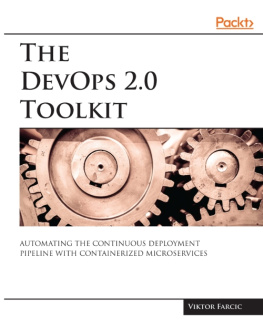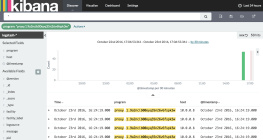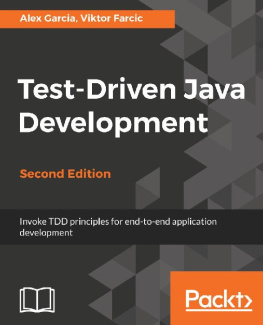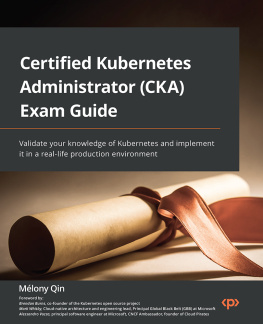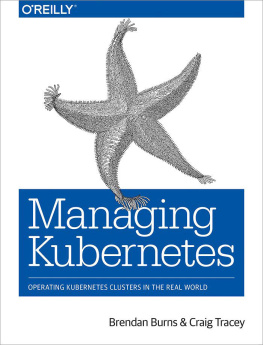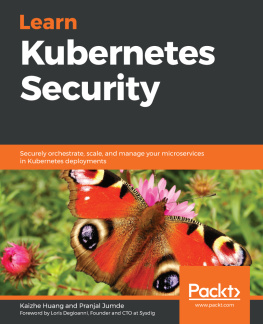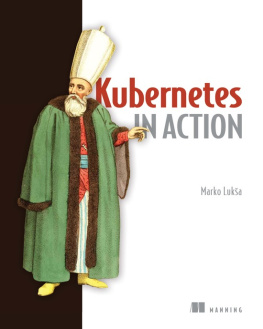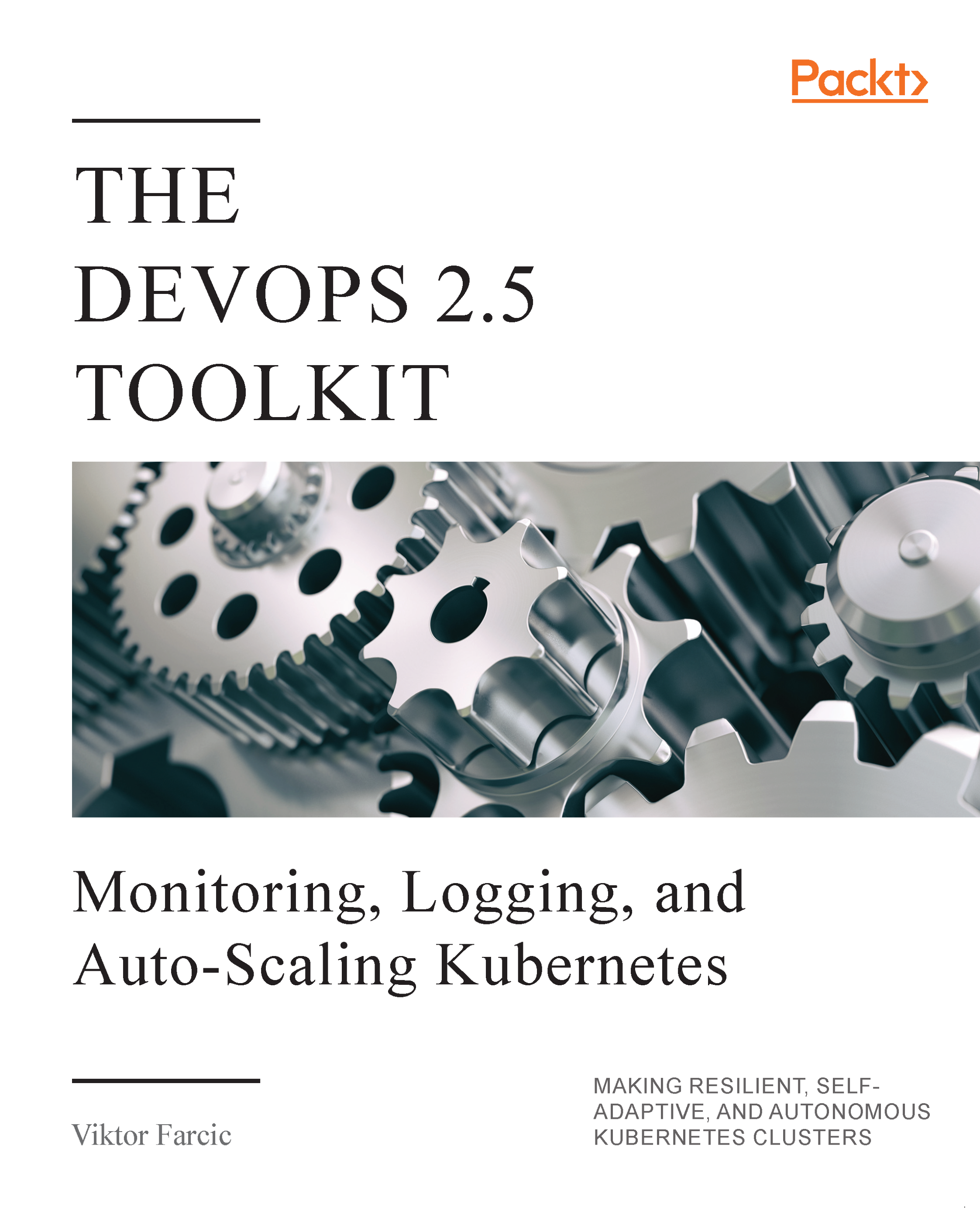
The DevOps 2.5 Toolkit
Monitoring, Logging, and Auto-Scaling Kubernetes: Making Resilient, Self-Adaptive, And Autonomous Kubernetes Clusters
Viktor Farcic

BIRMINGHAM - MUMBAI
The DevOps 2.5 Toolkit
Copyright 2019 Viktor Farcic
All rights reserved. No part of this book may be reproduced, stored in a retrieval system, or transmitted in any form or by any means, without the prior written permission of the publisher, except in the case of brief quotations embedded in critical articles or reviews.
Every effort has been made in the preparation of this book to ensure the accuracy of the information presented. However, the information contained in this book is sold without warranty, either express or implied. Neither the author, nor Packt Publishing or its dealers and distributors, will be held liable for any damages caused or alleged to have been caused directly or indirectly by this book.
Packt Publishing has endeavored to provide trademark information about all of the companies and products mentioned in this book by the appropriate use of capitals. However, Packt Publishing cannot guarantee the accuracy of this information.
Acquisition Editor: Dominic Shakeshaft
Technical Editor: Aniket Shetty
Indexer: Manju Arasan
Production Designer: Sandip Tadge
First published: November 2019
Production reference: 1261119
Published by Packt Publishing Ltd.
Livery Place
35 Livery Street
Birmingham
B3 2PB, UK.
ISBN 978-1-83864-751-3
www.packt.com
Packt.com
Subscribe to our online digital library for full access to over 7,000 books and videos, as well as industry leading tools to help you plan your personal development and advance your career. For more information, please visit our website.
Why subscribe?
Spend less time learning and more time coding with practical eBooks and Videos from over 4,000 industry professionals
Improve your learning with Skill Plans built especially for you
Get a free eBook or video every month
Fully searchable for easy access to vital information
Copy and paste, print, and bookmark content
Did you know that Packt offers eBook versions of every book published, with PDF and ePub files available? You can upgrade to the eBook version at www.packt.com and as a print book customer, you are entitled to a discount on the eBook copy. Get in touch with us at customercare@packtpub.com for more details.
At www.packt.com , you can also read a collection of free technical articles, sign up for a range of free newsletters, and receive exclusive discounts and offers on Packt books and eBooks.
To Sara and Eva.
Viktor Farcic
Contributors
About the author
Viktor Farcic is a Principal Consultant at CloudBees (https://www.cloudbees.com/), a member of the Docker Captains (https://www.docker.com/community/docker-captains) group, and author.
He coded using a plethora of languages starting with Pascal (yes, he is old), Basic (before it got Visual prefix), ASP (before it got .Net suffix), C, C++, Perl, Python, ASP.Net, Visual Basic, C#, JavaScript, Java, Scala, etc. He never worked with Fortran. His current favorite is Go.
His big passions are containers, distributed systems, microservices, continuous delivery and deployment (CD) and test-driven development (TDD).
He often speaks at community gatherings and conferences.
He wrote The DevOps Toolkit Series (http://www.devopstoolkitseries.com/) and Test-Driven Java Development (https://www.packtpub.com/application-development/test-driven-java-development).
His random thoughts and tutorials can be found in his blog TechnologyConversations.com (https://technologyconversations.com/).
Preface
Kubernetes is probably the biggest project we know. It is vast, and yet many think that after a few weeks or months of reading and practice they know all there is to know about it. It's much bigger than that, and it is growing faster than most of us can follow. How far did you get in Kubernetes adoption?
From my experience, there are four main phases in Kubernetes adoption.
In the first phase, we create a cluster and learn intricacies of Kube API and different types of resources (for example, Pods, Ingress, Deployments, StatefulSets, and so on). Once we are comfortable with the way Kubernetes works, we start deploying and managing our applications. By the end of this phase, we can shout "look at me, I have things running in my production Kubernetes cluster, and nothing blew up!" I explained most of this phase in The DevOps 2.3 Toolkit: Kubernetes (https://amzn.to/2GvzDjy).
The second phase is often automation. Once we become comfortable with how Kubernetes works and we are running production loads, we can move to automation. We often adopt some form of continuous delivery (CD) or continuous deployment (CDP). We create Pods with the tools we need, we build our software and container images, we run tests, and we deploy to production. When we're finished, most of our processes are automated, and we do not perform manual deployments to Kubernetes anymore. We can say that things are working and I'm not even touching my keyboard. I did my best to provide some insights into CD and CDP with Kubernetes in The DevOps 2.4 Toolkit: Continuous Deployment To Kubernetes (https://amzn.to/2NkIiVi).
The third phase is in many cases related to monitoring, alerting, logging, and scaling. The fact that we can run (almost) anything in Kubernetes and that it will do its best to make it fault tolerant and highly available, does not mean that our applications and clusters are bulletproof. We need to monitor the cluster, and we need alerts that will notify us of potential issues. When we do discover that there is a problem, we need to be able to query metrics and logs of the whole system. We can fix an issue only once we know what the root cause is. In highly dynamic distributed systems like Kubernetes, that is not as easy as it looks.
Further on, we need to learn how to scale (and de-scale) everything. The number of Pods of an application should change over time to accommodate fluctuations in traffic and demand. Nodes should scale as well to fulfill the needs of our applications.
Kubernetes already has the tools that provide metrics and visibility into logs. It allows us to create auto-scaling rules. Yet, we might discover that Kuberentes alone is not enough and that we might need to extend our system with additional processes and tools. This phase is the subject of this book. By the time you finish reading it, you'll be able to say that your clusters and applications are truly dynamic and resilient and that they require minimal manual involvement. We'll try to make our system self-adaptive.
I mentioned the fourth phase. That, dear reader, is everything else. The last phase is mostly about keeping up with all the other goodies Kubernetes provides. It's about following its roadmap and adapting our processes to get the benefits of each new release.
Next page

